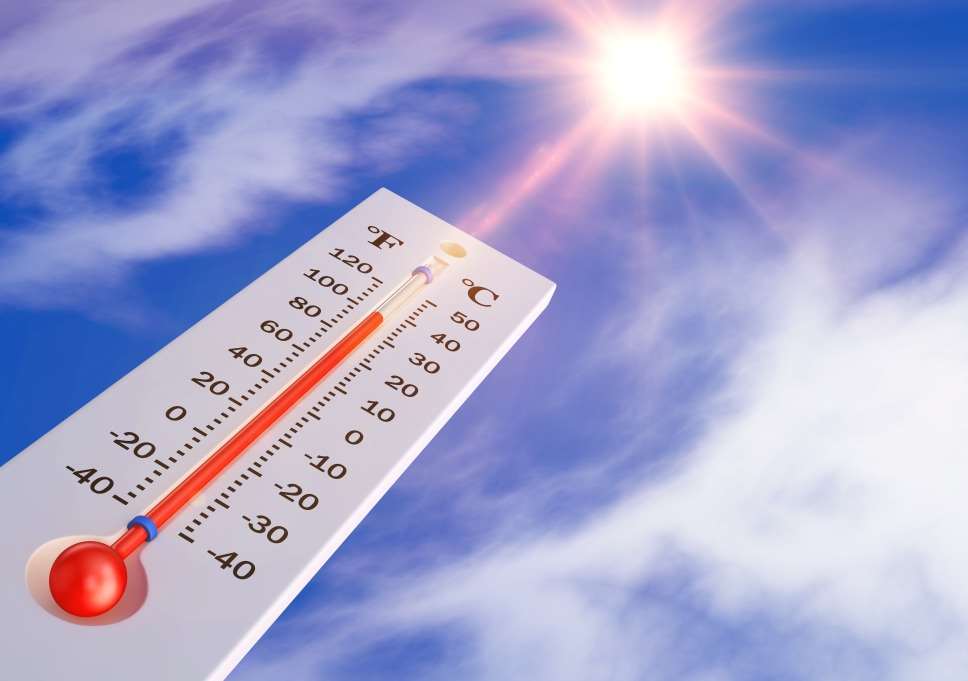A heatwave occurs when the maximum and the minimum temperatures are higher than usual, for over a three-day duration, at a particular location. Heatwaves typically occur between March to June, and in some rare cases even extend till July. It is also called a ‘silent disaster’ as it develops slowly.
The underlying causes for rise in the tenure and frequency of heatwaves are climate change and global warming. In 2022, at least 90 heat-related deaths were reported in Pakistan and India, and similar risk of fatalities cannot be ruled out in 2023 as well. However, authorities are better prepared this time, with a number of countries in the Asia-Pacific region already issuing early heatwave warnings and advisories.
Heatwaves cause both long-term and short-term impacts that affect business operations at tactical as well as strategic levels.
Long-term Impacts –
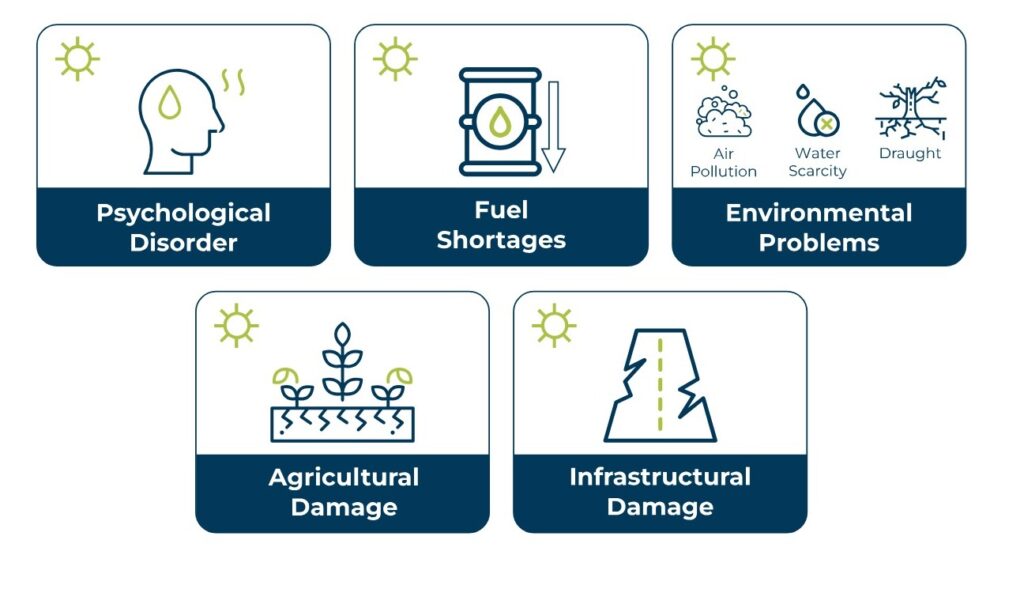
Short-term Impacts –
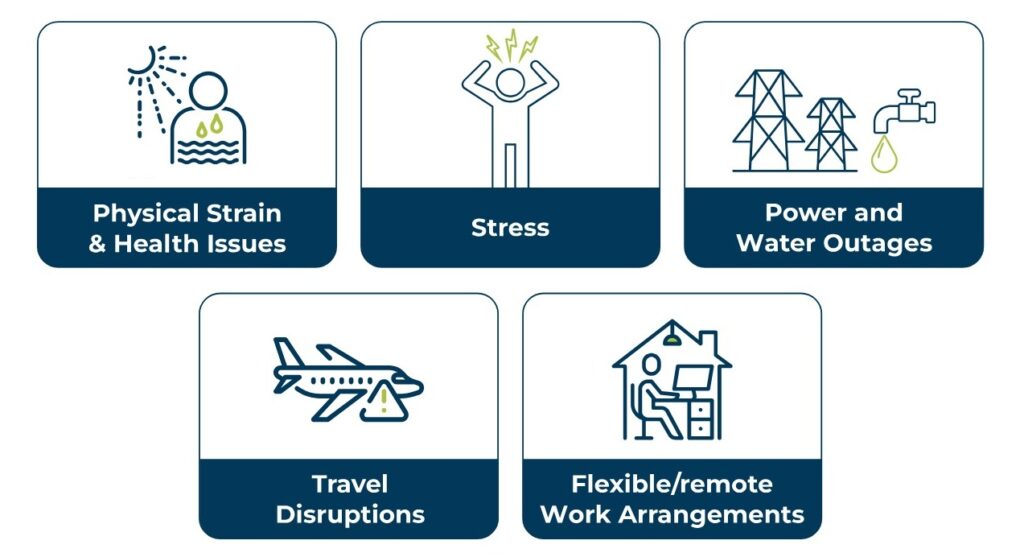
Heatwave Intensity
Heatwaves are classified into three types, based on intensity.
| Intensity | Low-intensity Heatwaves | Severe Heatwaves | Extreme Heatwaves |
| Frequency | High | Less Frequent | Typically, Infrequent |
| Health impact | Most people can cope | Difficult for vulnerable populations | Affects everyone, in absence of suitable precautions |
Heatwave Prone States in India
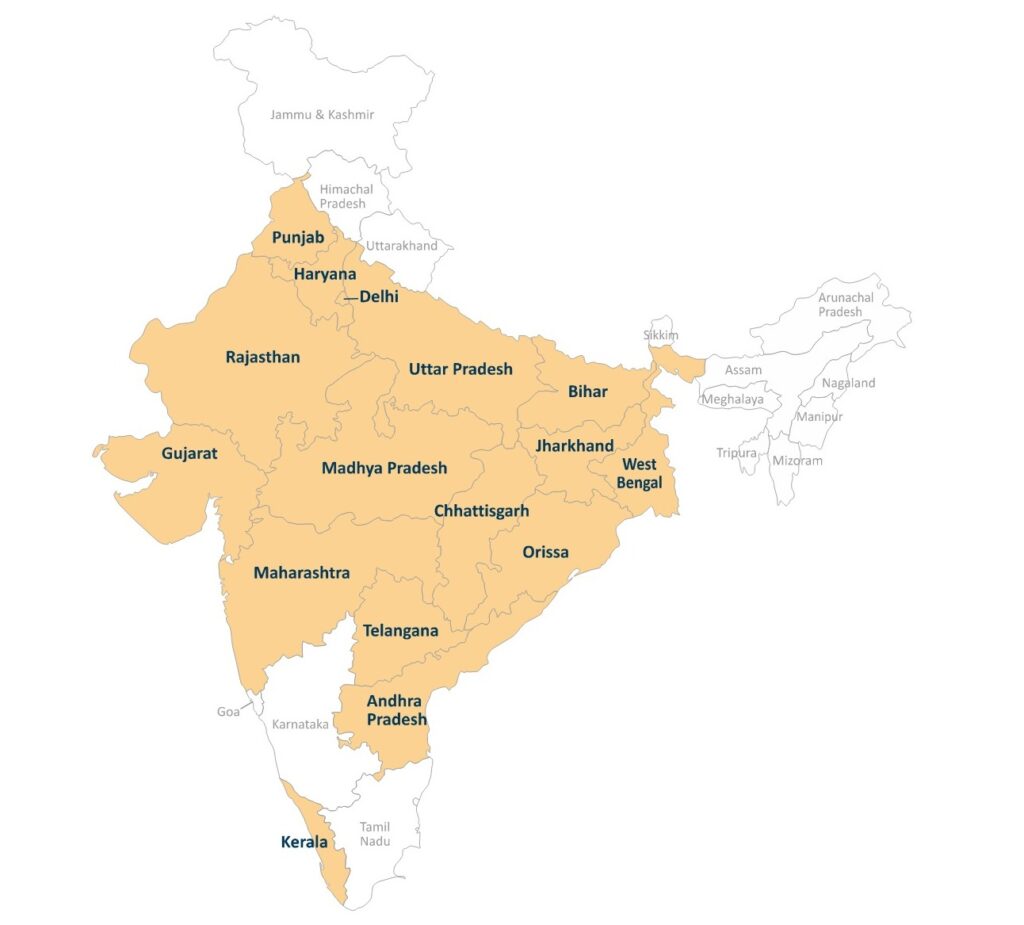
APAC countries under Heatwave Warnings
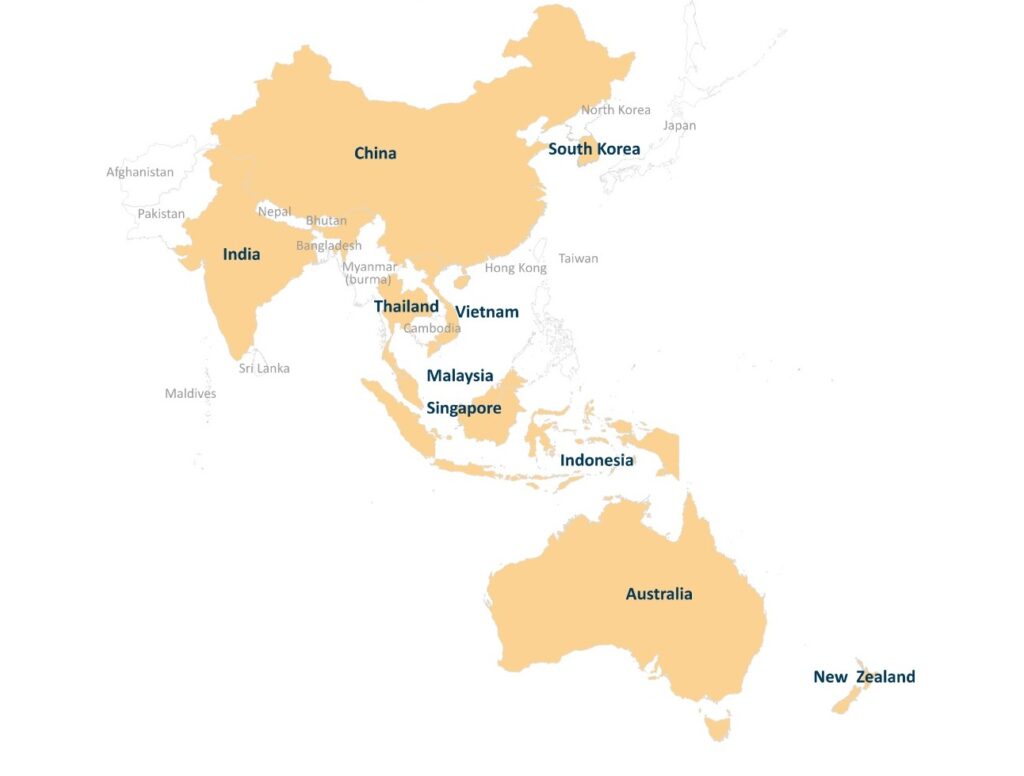
Vulnerable population groups
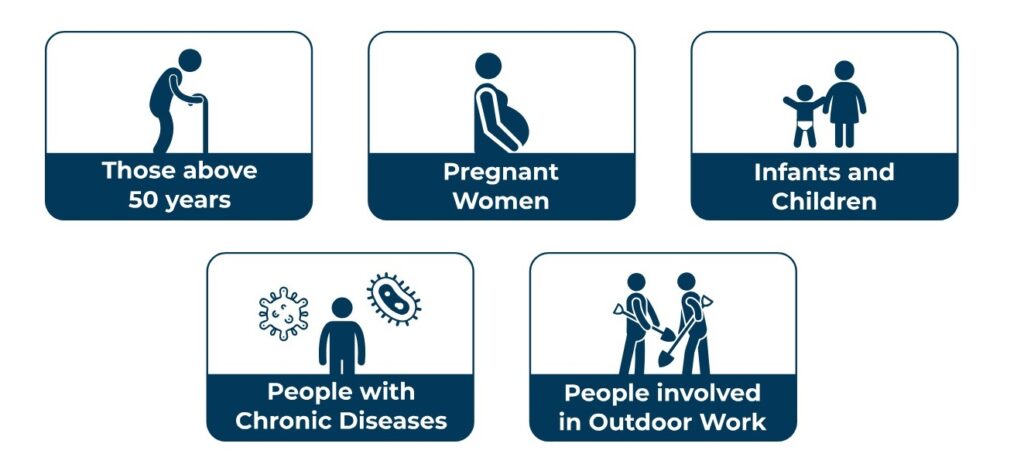
Symptoms and First Aid
| Heat Disorder | Symptoms | First Aid |
| Sunburn | Skin redness and pain, possible swelling, blisters, fever, headaches. | 1. Cold shower 2. Medical aid in case blister develops |
| Heat Cramps | Painful spasms usually in leg and abdominal muscles or extremities, heavy sweating. | 1. Application of firm pressure on cramping muscles or gentle massage to relieve spasm. 2. Adequate hydration. |
| Heat Exhaustion | Heavy sweating, weakness, skin cold, pale, headache and clammy, weak pulse, fainting, vomiting. | 1. Application of cool, wet cloth; relax in a cool and dry place. 2. Seek immediate medical attention in case of vomiting. |
| Heat Stroke (Sun Stroke) | 1. High body temperature (106+Fahrenheit). 2. Hot, dry skin 3. Rapid, strong pulse, possible unconsciousness, sweating unlikely. | 1. Heat stroke is a severe medical emergency. Call an ambulance, delay can be fatal. 2. Try a cool bath or sponging to reduce body temperature. Avoid fluids. |

Recommendations
For corporates
- Permit flexible working arrangements (schedule strenuous/ on- site jobs during low temperature hours, permit frequent breaks).
- Appoint a doctor/ general physician in the office building.
- Advised to pay extra attention to pregnant workers and workers with a medical condition.
- Establish a complete heat illness prevention program.
- Maintain stocks of ORS solution.
- Turn off machines (printers, photocopiers, projectors, etc) when not in use.
- MitKat advises to prepare for adequate power and water supply backups.
- In case any worker gets unconscious, avoid giving anything to drink or eat and seek medical help immediately.
- In case a worker feels unwell, provide frequent sips of cool water or ORS solution, slowly splash water, and increase air flow by using a hand-fan or anything that comes handy (paper, notebook, etc).
General
- Avoid non-essential outdoor activities during peak heat hours (1200-1600hours).
- Avoid engaging in strenuous physical activity in the afternoon.
- Refrain from intense physical activity in case feeling unwell.
- Carry water and food/fluids with glucose when stepping outdoors.
- Avoid consuming food or beverages that are not stored properly or exposed to the sun for an extended period.
- Avoid alcohol, tea, coffee and carbonated soft drinks, which dehydrates the body.
- Recognise the symptoms of heat stroke, heat rash or heat cramps and take adequate rest indoors or consult a doctor.
- Advised to wear cotton or lightweight clothes and use umbrella, cap, and sunglasses.
- Advised to remain vigilant of advisories issued by competent authorities. The National Disaster Management Authority of India has issued a heatwave advisory which can be accessed at – https://ndma.gov.in/index.php/NaturalHazards/Heat-Wave
